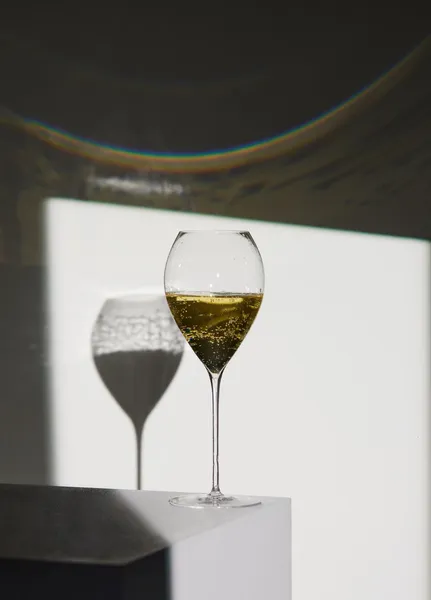3 Min Read
The Art of Wine: How Glass Shape and Size Enhance Your Sensory Experience
As wine enthusiasts, we often focus on the origin, vintage and varietal of the wines we consume. However, another crucial aspect can significantly impact our enjoyment of wine – the glassware. The size and shape of your wine glass can transform your perception and appreciation of wine as a unique sensory experience. In this article, we will delve into why the shape and quality of your wine glass matter and how they can elevate your drinking experience.
11 May 2023

The Science Behind the Glass
The shape and size of a wine glass are not just about aesthetics; they play a vital role in the wine's aroma, taste, and overall enjoyment. The design of a wine glass can influence how the wine flows into your mouth, the temperature at which it is consumed, and the intensity of its aroma.
A wine glass typically consists of three parts: the bowl, the stem, and the base. The bowl is the most crucial component, as it determines how the wine's aroma is released and how it flows onto your palate. The stem allows you to hold the glass without affecting the wine's temperature, while the base provides stability.
The Perfect Glass for Every Wine
Different wine glasses are designed to enhance the characteristics of specific wine varieties. Here are some examples of how the shape and size of a wine glass can affect your sensory experience:
1. Red Wine Glasses: Red wines, such as Cabernet Sauvignon and Merlot, benefit from a larger bowl with a wider opening. This design allows the wine to breathe, softening its tannins and releasing its complex aromas. The wider opening also directs the wine to the back of the palate, where the taste buds are more sensitive to bold flavours.
Plumm Three No.3 Pinot Noir/Chardonnay
Plumm Red B Handmade Vintage Gift Box
2. White Wine Glasses: White wines, such as Chardonnay and Sauvignon Blanc, are best served in a glass with a smaller bowl and a narrower opening. This design helps to preserve the wine's delicate aromas and maintain its cooler serving temperature. The narrower opening also directs the wine to the front of the palate, where the taste buds are more sensitive to crisp, refreshing flavours.
Plumm White B Handmade Vintage
3. Sparkling Wine Glasses: Sparkling wines, such as Champagne and Prosecco, require a tall, slender glass known as a flute. This design helps to preserve the wine's effervescence and concentrate its aromas. The elongated shape also directs the wine to the back of the palate, where the taste buds can appreciate its delicate flavours and acidity.
Lehmann Jamesse Collection GD 41cl Champagne
Lehmann Jamesse Collection GD 45cl Champagne
4. Dessert Wine Glasses: Dessert wines, such as Port and Sauternes, are best enjoyed in a smaller glass with a narrow opening. This design concentrates the wine's decadent aromas and directs the wine to the front of the palate, where the taste buds can appreciate its sweetness and complexity.
Quality Matters
The quality of your wine glass can also impact your sensory experience. High-quality glassware, such as crystal, is thinner and more transparent, allowing you to appreciate the wine's colour and clarity. Crystal glassware also has a smoother surface, which helps to preserve the wine's aroma and flavour.
In addition, high-quality wine glasses are designed with a specific purpose in mind, ensuring that the shape and size are perfectly suited to the wine variety. Investing in premium wine glasses can significantly enhance your enjoyment of wine and elevate your dining experience.
The size and shape of your wine glass play a crucial role in your perception and enjoyment of wine as a unique sensory experience. By understanding the science behind the glass and selecting the appropriate glassware for each wine variety, you can elevate your drinking experience and appreciate the true art of wine. Cheers!







